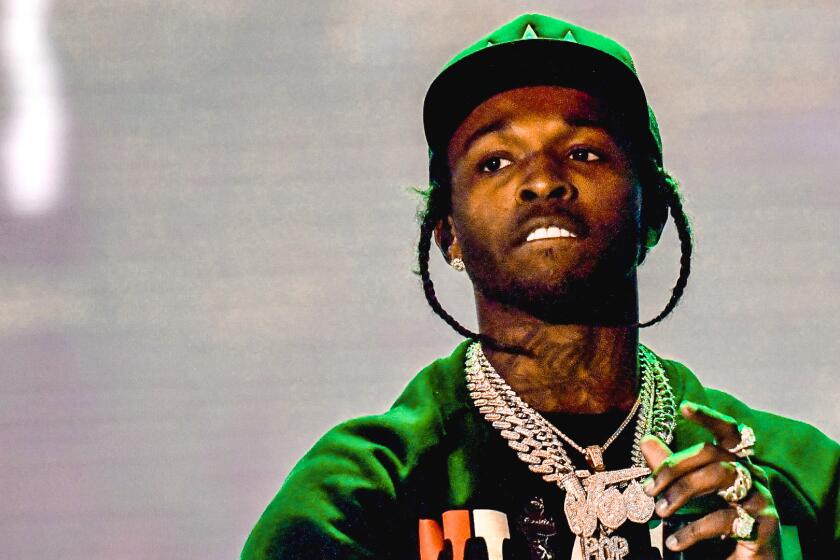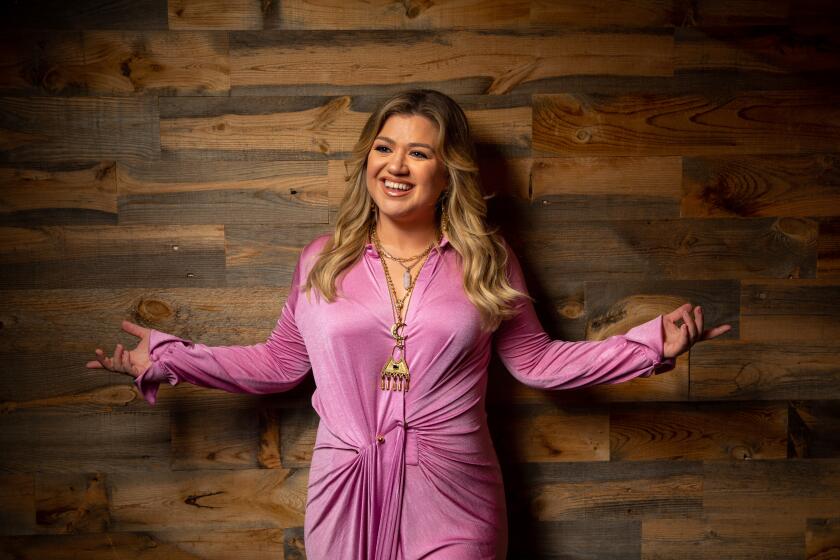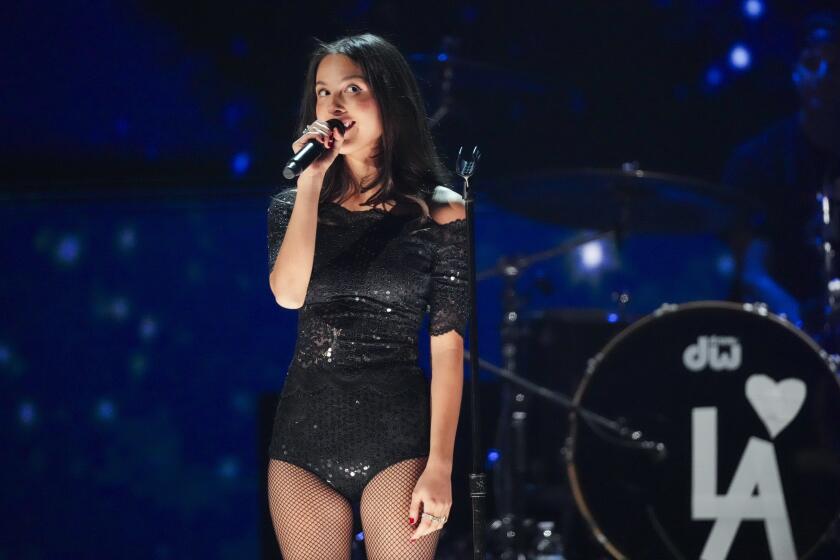THE CURE: A DOUBLE DOSE : * * * * <i> Great Balls of Fire</i> * * * <i> Good Vibrations</i> * * <i> Maybe Baby</i> * <i> Running on Empty : </i>
- Share via
* * * KISS ME, KISS ME, KISS ME.” The Cure. Elektra.
If there was any doubt that ‘70s nostalgia has become the current pop pastime of choice, consider: The two-record set is back .
None of this year’s ballyhooed double-albums--first from Husker Du, then Prince, now the Cure--is filled with two LPs’ worth of great material, and they aren’t about to make anyone forget the Beatles’ White Album. But it’s nonetheless an ambitious phenomenon worth welcoming back.
If the Cure had only released a single disc this time, who knows which songs wouldn’t have made the cut? True, we might have been spared some of the sound-alike psychedelic mid-tempo numbers.
Then again, the English quintet might’ve dumped some of what makes this set truly worthwhile--like “Just Like Heaven,” a light pop tune with acoustic guitar and synthesizer interplay, and “All I Want,” dominated by electric guitar so distorted it sounds like a Neil Young tribute, and the positively funky “Hot Hot Hot!!”
For all its unevenness, “Kiss Me” is a welcome step away from the existential gloom-monster image the Cure has cultivated. The band still sounds like the Velvet Underground meeting Emo Philips in a dimly lit post-punk disco, but with an even wider variety of influences and instrumentation in the mix. And singer-guitarist Robert Smith still has one of those annoying English monotones, but unlike all of the other thousands of owners of annoying English monotones, he’s not afraid to risk all sorts of things with it in true Dylan-esque fashion--diving, swooping, even gargling like a depressed modernist Tiny Tim.
Smith’s at his vocal wildest in the single “Why Can’t I Be You?,” an uncharacteristically exhilarating love song with a Motown beat that’s of the best things to happen to the dance floor this year.
Its lyrical hook: Smith is so enamored of his beloved that he doesn’t just want to be with her, he wants to be her. In fact, the whole set is unexpectedly filled with such cockeyed romantic reveries.
But then there are all those numbers with foreboding instrumental introductions so long they seem to be instrumentals until Smith’s vocal finally comes in two or three--or four!--minutes into the song. And you just know that some anti-vinyl spoilsport out there is waiting to use that kind of indulgence as an excuse to decry the long-awaited return of the prodigal multiple-record set.
More to Read
The biggest entertainment stories
Get our big stories about Hollywood, film, television, music, arts, culture and more right in your inbox as soon as they publish.
You may occasionally receive promotional content from the Los Angeles Times.










